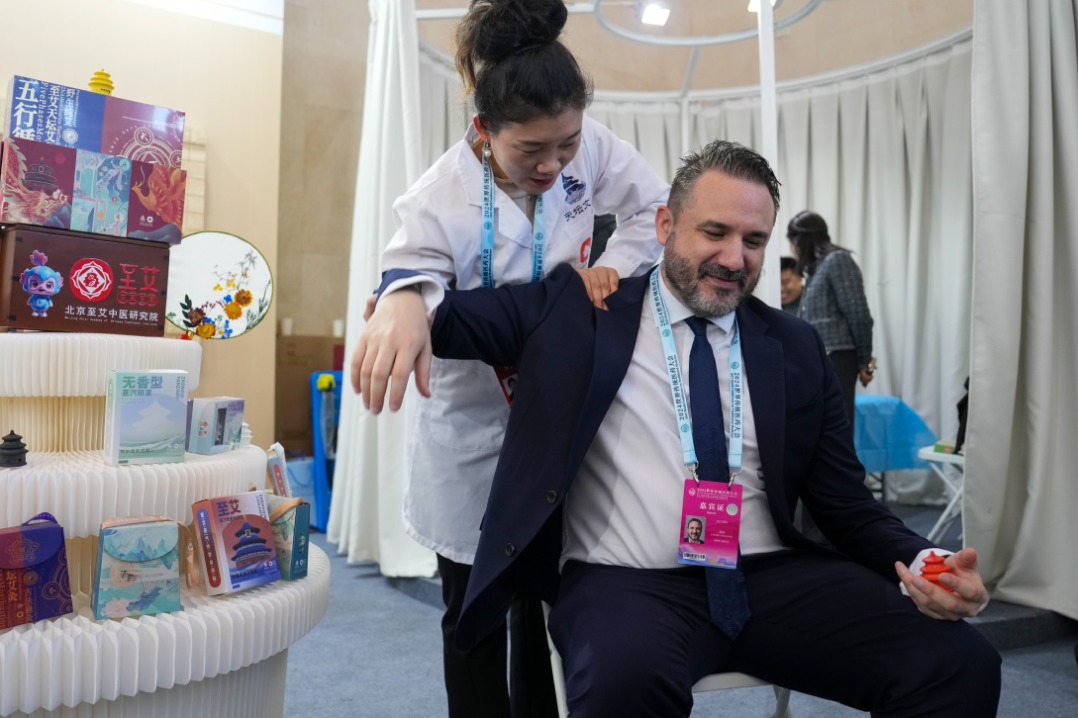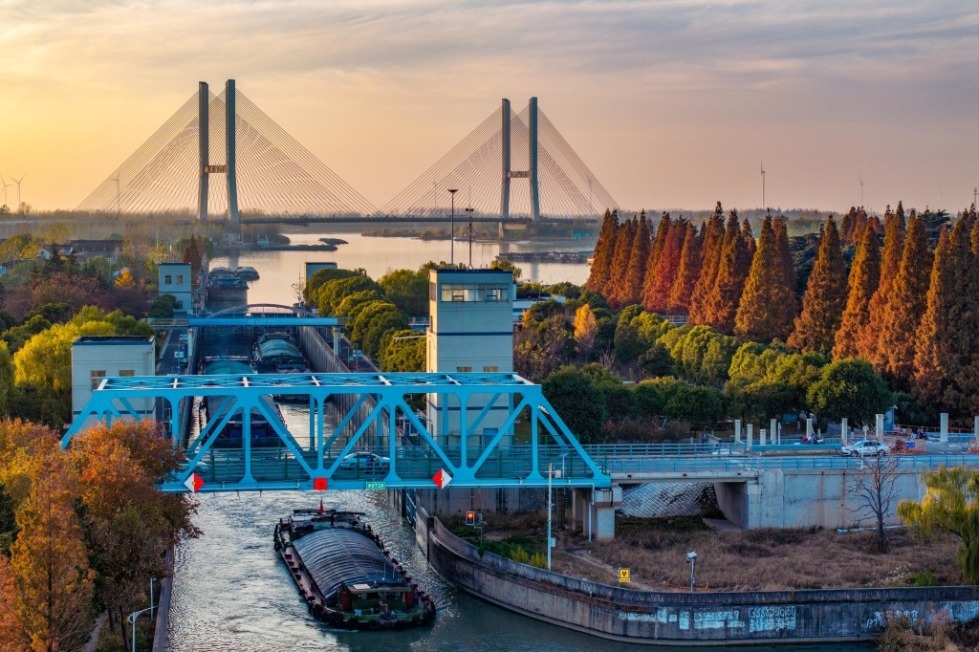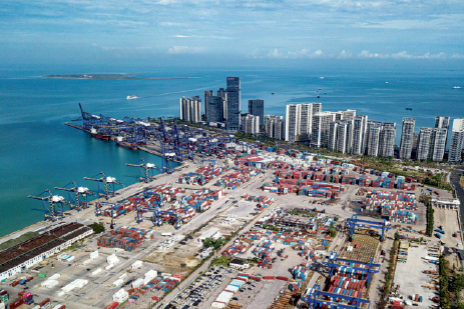Chinese companies score big at World Cup


Enterprises showcase wide range of products at Qatar tournament
Although failing to qualify for the FIFA World Cup finals soccer tournament now underway in Qatar, China is making a huge contribution to the largest global sporting event.
Chinese products, infrastructure projects and sponsors have won praise from appreciative fans and potential customers.
In recent months, Luo Yang, a sales manager at the overseas business unit of Higer Bus Co, a bus and truck manufacturer based in Suzhou, Jiangsu province, has kept a close eye on the 1,815 buses the company delivered to Qatar last year.
These vehicles operate shuttle services for the thousands of fans, officials and journalists from different countries during the tournament, which is being staged from Nov 20 to Dec 18.
"After the World Cup, the buses will be used to take children to and from school," Luo said, adding that child monitoring systems installed in the vehicles sound an alert when a bus arrives at its destination. The driver moves through the vehicle to ensure the children leave safely, before pressing a button to turn off the alert.
Higer's rival, Zhengzhou Yutong Group Co, a commercial vehicle maker in Zhengzhou, Henan province, exported more than 1,500 buses to Qatar for the World Cup, including 888 electric-powered ones. It is the first time that new energy buses from China have been used at a major global sporting event.
A range of Chinese items are available at the tournament, including key rings, horns, flags, clothing and shoes from Yiwu, Zhejiang, and Jinjiang, Fujian province, as well as fireworks from Liuyang, Hunan province.
Market observers said the abundance of such products is due to China's industrial upgrading boom, well-developed supply chains, and green transformation.
China International Marine Containers (Group), based in Shenzhen, Guangdong province, was responsible for building Stadium 974 in Qatar, which was assembled from 974 containers and can be easily dismantled.
Air conditioners for 100 security check centers at the tournament venues were provided by China's Midea Group, and the communication facilities at stadiums and the network equipment for the joint command and control center were made in China.
Zhao Xinli, dean of the advertising institute at Communication University of China in Beijing, said that if the elements provided by China for the Qatar event were contesting a "global manufacturing World Cup", then "Team China" would surely be a popular winner.
Xiao Shuhong, a professor of sports economics at Beijing Sport University, said China's contribution to the World Cup reflects the Chinese market's growing significance to the global economy. Held every four years, the tournament will considerably boost growth of the global sports economy by creating business opportunities for export-oriented companies in China and other parts of the world, Xiao added.
Boosted by their complementary trade structure and the World Cup, the total trade value between China and Qatar rose by 64.7 percent year-on-year to $21.66 billion between January and October, according to China's General Administration of Customs.
At Lusail Stadium, north of Doha, the Qatari capital, Unilumin Group, a high-definition screen manufacturer headquartered in Shenzhen, installed two 70-square-meter light-emitting diode, or LED, screens showing the score during matches. The 190-sq-m stadium, which has a capacity of 80,000, is due to host the tournament final on Dec 18.
Yang Jun, president for the Qatar market at Unilumin Group's international sales center, said that as the Gulf nation has high temperatures and strong sunlight, the LED displays used for the World Cup better disperse heat. They also have a higher brightness level than other screens, Yang added.
"The Qatar World Cup is a microcosm of Chinese brands going global," he said, adding that the company is ready to receive more orders for the Asian Cup soccer tournament, which will be held in Qatar next year.
Similar views were expressed by Zhang Feng, vice-president of Avant Sports Industrial Co, another sports equipment and facility manufacturer based in Shenzhen, which supplied tens of thousands of movable and retractable seats for the eight World Cup venues in Qatar.
Zhang said that by aiming to play a dynamic role in smart output, China's manufacturing sector is relying on greener and digital technologies to further compete with global rivals.
"As Qatar is still relatively hot at this time of year, we used a new type of cooling material for the seats, which can reduce the temperature of the seat surface by 9 to 17 degrees. These seats are expected to have a lifetime of more than a decade," Zhang added.
Sponsors welcomed
Even without the presence of the Chinese team at the tournament, Chinese sponsors are enthusiastic about the Qatar World Cup, and they have been warmly welcomed by the host country.
According to GlobalData, a data analytics and consulting company based in London, 20 Chinese companies have provided more sponsorship for the 2022 World Cup than rivals from other countries. These companies rank top globally with spending of nearly $1.4 billion, exceeding the $1.1 billion outlay from US companies.
The Chinese companies are spearheaded by four official FIFA sponsors — the commercial property developer Wanda Group, home appliance manufacturer Hisense Group, smartphone producer Vivo, and dairy brand Mengniu.



































